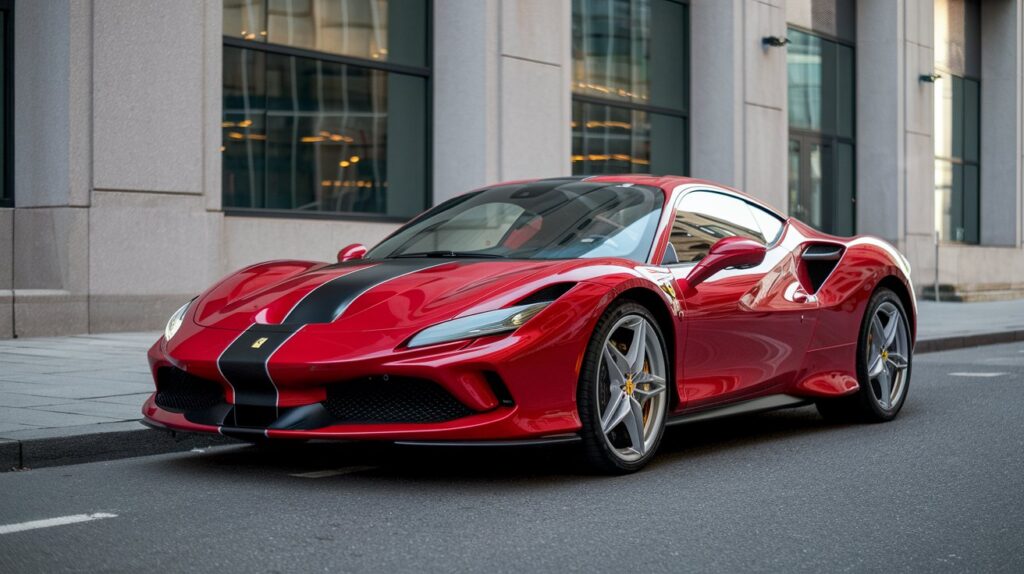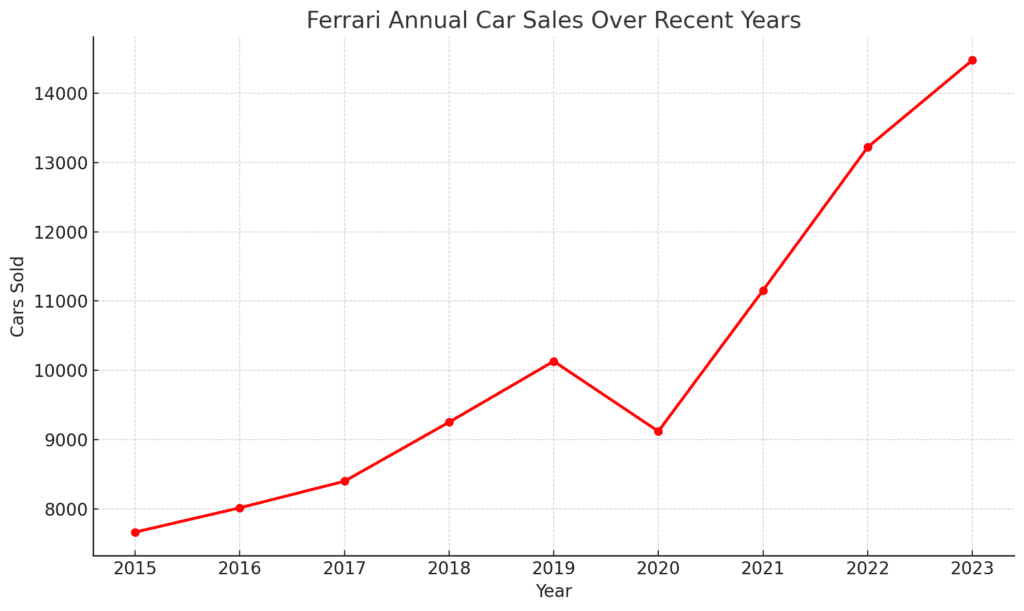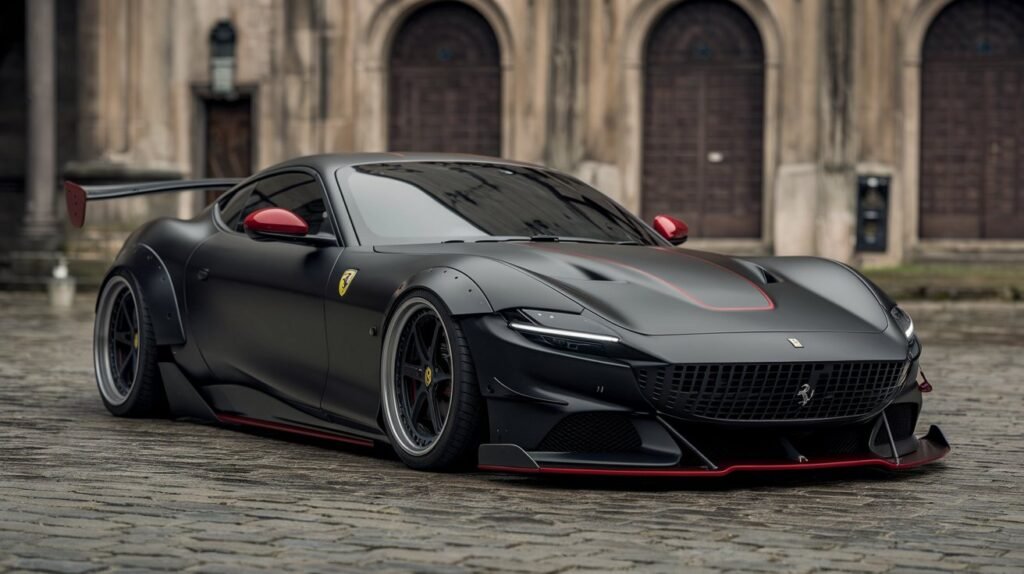Introduction
Few car brands command the level of reverence, exclusivity, and fascination that Ferrari does. The Italian carmaker, founded in 1939 by Enzo Ferrari, stands out as a symbol of luxury, speed, and pure performance. But Ferrari’s success story is laced with a side of arrogance that has grown with its reputation. Critics and fans alike acknowledge Ferrari’s unwavering confidence—often crossing into perceived arrogance—as central to its identity. But why is Ferrari considered so arrogant? What factors contribute to this perception? Let’s uncover the legacy, strategy, and culture that define Ferrari’s unique mystique.
Table of Contents
1. Ferrari’s Legacy of Perfection and Performance
From the beginning, Ferrari set out to build not just cars but “machines of emotion.” The brand was never intended for the masses; it was born from a passion for motorsports and uncompromising standards. This foundation set a high benchmark, with Ferrari rarely yielding to trends or compromising its vision, which often translates into arrogance in the eyes of the public.
- Racing Pedigree: Ferrari’s DNA is steeped in racing, where winning isn’t just a goal but an expectation. Dominance on the track has solidified Ferrari’s legacy, and this competitive drive extends to every aspect of its production and brand.
- Commitment to Exclusivity: Ferrari has always limited its production numbers to preserve exclusivity. This controlled scarcity ensures that owning a Ferrari remains an elite privilege, which can be seen as an intentional display of superiority.

2. Strict Control Over Brand Image and Customer Behavior
One of the core reasons for Ferrari’s perceived arrogance is its strict control over branding and customer interactions. Ferrari doesn’t simply sell cars; it curates experiences and enforces ownership standards that few brands would dare impose.
- Ownership Restrictions: Ferrari has been known to implement strict rules for customers, such as limiting modifications to preserve the car’s original design. Owners have been reprimanded and even sued for altering their Ferraris in ways Ferrari disapproves of, reinforcing the brand’s strong stance on maintaining its identity.
- Approval Process for Buyers: Ferrari occasionally requires prospective buyers of special-edition models to undergo an approval process, selecting customers who align with Ferrari’s ideals. This exclusivity adds an air of arrogance, as it signals that not everyone can simply buy a Ferrari—even with the necessary funds.
Celebrities Banned by Ferrari
Ferrari is known for its strict brand standards and exclusivity, even going as far as banning certain celebrities from owning its cars. Here are some notable names who have reportedly been banned by Ferrari for various reasons:
- Justin Bieber – The pop star reportedly faced a Ferrari ban after altering his car’s color and auctioning it off, actions Ferrari did not approve of.
- Kim Kardashian – Ferrari allegedly restricted Kardashian from buying any of its limited-edition models, although she may still own other Ferrari cars. Ferrari reportedly felt her image did not align with the brand’s values.
- Nicolas Cage – Due to financial difficulties and subsequent sales of his Ferrari, Cage was reportedly banned from purchasing certain models, as Ferrari prefers owners who hold onto their vehicles.
- Floyd Mayweather – The champion boxer, known for frequently buying and selling luxury cars, reportedly annoyed Ferrari with his resale habits, leading to limitations on his access to certain models.
- 50 Cent – Rapper 50 Cent has had conflicts with Ferrari over maintenance issues and publicly complained about his Ferrari model. This dissatisfaction may have contributed to a rift with the brand.
- Tyga – The rapper’s reported financial issues and legal disputes with the dealership over unpaid payments have allegedly led to restrictions on his Ferrari access.
- Deadmau5 – The DJ wrapped his Ferrari 458 Italia in a “Purrari” theme (complete with Nyan Cat), which Ferrari disapproved of. After ignoring Ferrari’s requests to remove the wrap, he was reportedly blacklisted by the brand.
3. Marketing Strategy: Exclusivity as a Status Symbol
Ferrari’s branding strategy relies on making its cars a status symbol, not only by limiting production but by creating a sense of prestige that extends far beyond the vehicle itself.
- Scarcity as a Selling Point: By producing limited quantities, Ferrari creates scarcity, driving up demand and elevating the value of its cars. Unlike many automakers that aim for higher production to increase revenue, Ferrari’s approach is intentionally restrictive, amplifying its exclusivity.
- Never on Sale: Another hallmark of Ferrari’s brand is its refusal to discount vehicles. Even during economic downturns, Ferrari has maintained its pricing and exclusive positioning, reinforcing that it doesn’t need to cater to traditional market pressures.
4. Protecting the Ferrari Image: Legal Battles and Public Conflicts
Ferrari’s legal confrontations over brand integrity demonstrate its assertive approach to maintaining its image. The company has pursued legal action against customers, companies, and even individuals who might tarnish its brand image.
- Trademark Protection: Ferrari aggressively defends its trademarks and designs, suing companies and individuals who use or reference its brand without permission. This protects its image, but also projects an aggressive, sometimes overbearing attitude.
- High-Profile Conflicts: Cases where Ferrari has taken legal action against celebrities or owners—for modifying vehicles or unauthorized brand use—create public narratives that enhance the perception of arrogance. For instance, Ferrari’s disputes with famous figures like rapper Deadmau5 over customizations demonstrate its uncompromising stance on brand preservation.
5. Pricing and Accessibility: Keeping Ferrari in the Elite Realm
Ferrari doesn’t just sell cars; it sells an experience that’s financially out of reach for the majority of car enthusiasts. The price tag alone conveys exclusivity and detachment, often perceived as arrogance by those who feel excluded from the brand.
- Starting Prices and Rare Editions: Ferrari’s base models are expensive, and its special editions are even pricier, creating a natural barrier to entry. Models like the LaFerrari or the Monza SP1 and SP2 are only available to select clients, fueling the perception that Ferrari caters only to an elite group.
- Intentional Limited Runs: Each Ferrari is marketed as a unique creation, with only a limited number available globally. Special edition models are produced in even smaller batches, increasing the resale value and the sense of owning something unattainable.

6. Ferrari’s Culture of Tradition and Reluctance to Change
Ferrari is steeped in tradition, and this commitment often results in a reluctance to adapt or compromise. The brand’s loyalty to its original values and racing spirit is both its greatest strength and the foundation of its perceived arrogance.
- Reluctance Toward Electric Vehicles: Although Ferrari has started to venture into hybrid technology, it was slow to adopt electric power compared to other luxury car manufacturers. Its hesitance stems from a dedication to its combustion engine legacy, which some see as arrogance or resistance to environmental trends.
- Traditional Design Language: Ferrari’s designs retain certain characteristics that pay homage to the brand’s history, sometimes ignoring market trends for innovative aesthetics. This adherence to a classic style reinforces its position as a brand that sets, rather than follows, trends.

7. Mystique and Myth-Building: Ferrari’s Intentional Elitism
Ferrari capitalizes on myth-making, building an almost mystical status that sets it apart from other supercar brands. The brand’s narratives, amplified by limited access and storytelling, elevate it to legendary status.
- Legacy Storytelling: Ferrari’s history is heavily promoted, with stories of Enzo Ferrari, past races, and iconic cars like the 250 GTO that sell a legend as much as a car. This creates an aura of untouchability, which often gets mistaken for arrogance.
- Events and Special Privileges: Ferrari regularly holds exclusive events and auctions limited to VIP clients and long-standing enthusiasts. Ferrari’s events are designed to deepen relationships with an inner circle of the wealthy, distancing it from broader public engagement.
8. Comparisons with Other Supercar Brands
While other supercar brands like Lamborghini, Aston Martin, and McLaren also project exclusivity, Ferrari’s rigid control and elitist positioning set it apart. Where brands like Lamborghini embrace bold, almost rebellious branding, Ferrari opts for a refined and disciplined image.
- McLaren’s Customer-Focused Approach vs. Ferrari’s Control: McLaren engages directly with customers and embraces customization, whereas Ferrari remains selective about customer modifications, preserving its brand at the cost of user freedom.
- Lamborghini’s Edgy Branding vs. Ferrari’s Conservative Stance: Lamborghini’s branding is playful and rebellious, which contrasts with Ferrari’s serious, almost regal demeanor. This makes Ferrari appear more austere and less accessible, enhancing its elite persona.
9. Ferrari’s Relationship with Media and the Public
Ferrari’s relationship with the media and its fans is complex. While the brand enjoys a massive following, it keeps a distance, rarely engaging in direct outreach or catering to mass-market trends.
- Minimalist Advertising: Ferrari famously avoids extensive advertising, opting instead for exposure through racing victories and exclusive events. The brand’s visibility stems from its cars and legacy, not from commercials or marketing campaigns, enhancing its mystique.
- Selective Media Access: Ferrari controls media interactions and seldom allows extensive reviews or tests, unlike other car manufacturers that encourage automotive journalists to showcase their cars. This controlled exposure maintains Ferrari’s exclusive image but can also appear as arrogance.
FAQs
1. Why is Ferrari considered an arrogant brand? Ferrari is often seen as arrogant due to its strict control over brand image, exclusive ownership policies, and refusal to compromise on its identity. This stance creates an aura of elitism and superiority that distances it from mainstream consumers.
2. Does Ferrari have restrictions on who can buy its cars? Yes, Ferrari has strict guidelines, especially for limited-edition models. Prospective buyers of special models must sometimes go through an approval process, with Ferrari often prioritizing loyal customers and long-time enthusiasts.
3. Why doesn’t Ferrari allow modifications to its cars? Ferrari prohibits unauthorized modifications to maintain its design integrity and protect the brand image. The company values its identity highly, preferring that each car represents Ferrari in its original form.
4. How does Ferrari’s racing legacy contribute to its perceived arrogance? Ferrari’s success in motorsports has fostered a reputation for excellence and exclusivity, which extends to its road cars. This legacy positions Ferrari as a leader, often enhancing its authoritative image and reinforcing its strict standards.
5. Why does Ferrari produce such a limited number of cars? Ferrari intentionally limits production to create scarcity, ensuring its cars remain rare and desirable. This exclusivity reinforces its luxury status, making ownership a unique privilege.
6. Are Ferrari’s strict customer policies unique compared to other supercar brands? Yes, Ferrari’s level of control over customer actions is more rigid than most other luxury brands. While many high-end carmakers embrace customization, Ferrari is strict about preserving its identity and brand consistency.
7. Why doesn’t Ferrari engage in traditional advertising? Ferrari relies on its racing pedigree, iconic designs, and reputation rather than traditional advertising. This strategy heightens its exclusivity, maintaining an aura of prestige that doesn’t rely on mainstream marketing.
8. How does Ferrari’s design philosophy contribute to its elite image? Ferrari’s designs emphasize classic, luxurious aesthetics combined with cutting-edge performance, creating a balance that appeals to a refined audience. This traditional approach is central to Ferrari’s image, resisting market trends to preserve its unique style.
9. What legal actions has Ferrari taken to protect its brand image? Ferrari actively defends its trademarks and has taken legal action against those who use its name or modify its cars without permission. These actions safeguard its brand but sometimes appear aggressive or overly controlling.
10. How does Ferrari compare to brands like Lamborghini or McLaren in terms of exclusivity? While brands like Lamborghini emphasize boldness and McLaren focuses on innovation, Ferrari prioritizes exclusivity and tradition. Its disciplined, prestigious branding contrasts with its competitors’ more accessible or edgy approaches.
Conclusion: The Prestige and the Price of Arrogance
Ferrari’s perception of arrogance is, in many ways, a byproduct of its excellence. The brand’s dedication to exclusivity, tradition, and perfection has built a mystique that is both admired and criticized. Ferrari’s arrogance is rooted in its mission to deliver the finest machines while maintaining an elite aura that few brands can match. This assertive stance ensures Ferrari remains at the top of the luxury car hierarchy, even as it fuels a sense of superiority that can come off as arrogance.
In essence, Ferrari’s “arrogance” is a meticulously cultivated identity that enhances its brand value. For Ferrari, arrogance is less a flaw than a signature trait—a declaration of its standing as one of the most desirable, untouchable car brands in the world.

